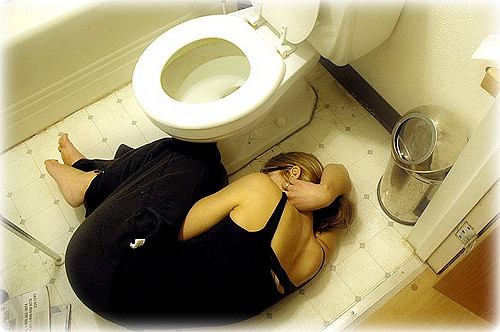
For starters, everybody poops, and there’s no “right” way to do it, says Larry Good, MD, a board-certified gastroenterologist affiliated with Concierge Choice Physicians. “Each of us poops differently,” and some people always tend to have BMs that are kind of watery–and that might be fine, he says. The key is to pay attention to what’s normal for you.
When you see a doctor, he will likely ask you to describe how severe your loose stools are, says Good. “There is actually a scale, the Bristol Stool Scale, that is used in scientific studies to quantify the severity of diarrhea.” Level 1 is constipated, level 7 is super watery, and levels 4 and 5 are normal. Meanwhile, the consistency of your BMs isn’t the only change worth tracking: If you’re going more or less often than you used to, that’s important to discuss with your doc, too.

